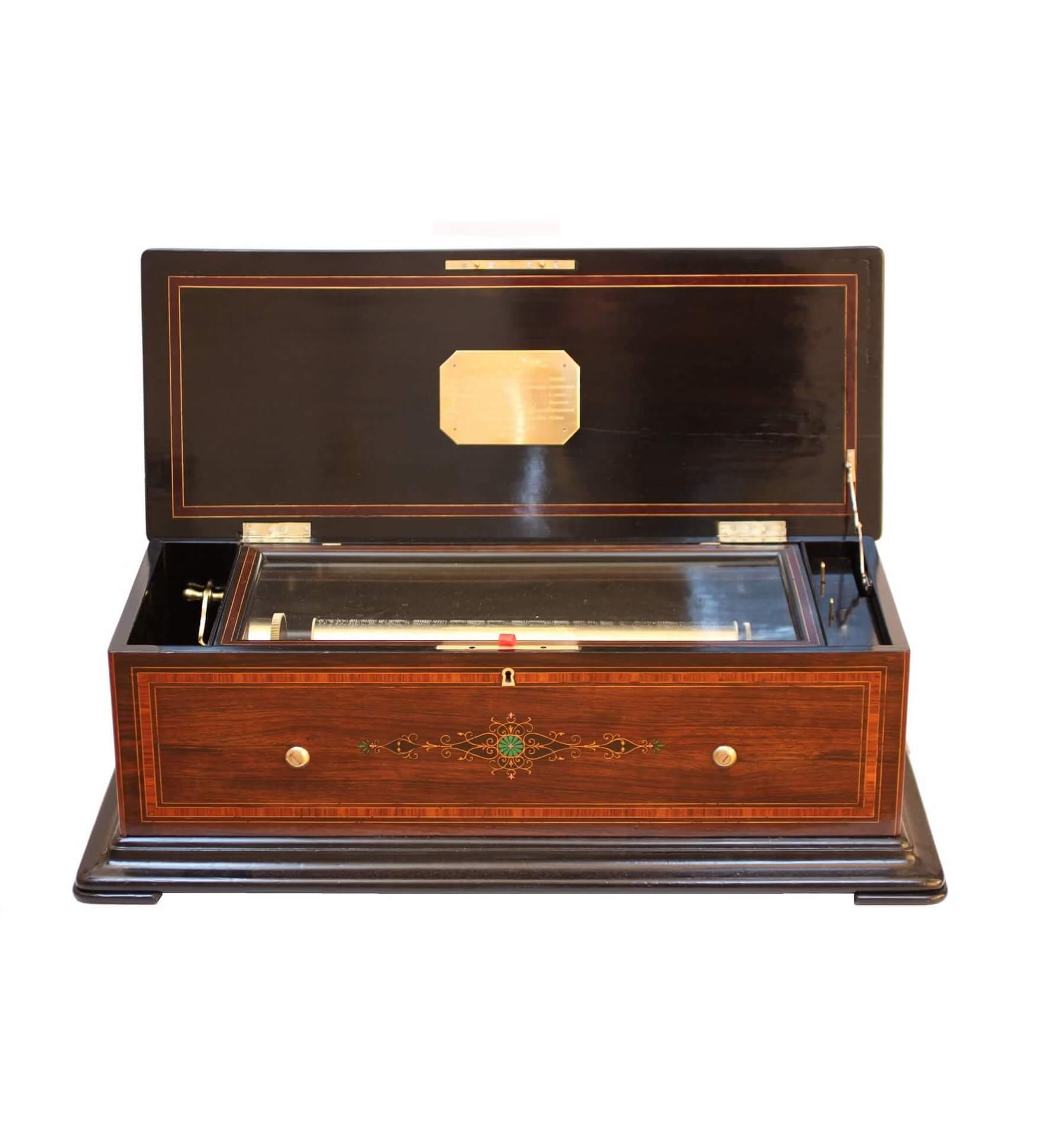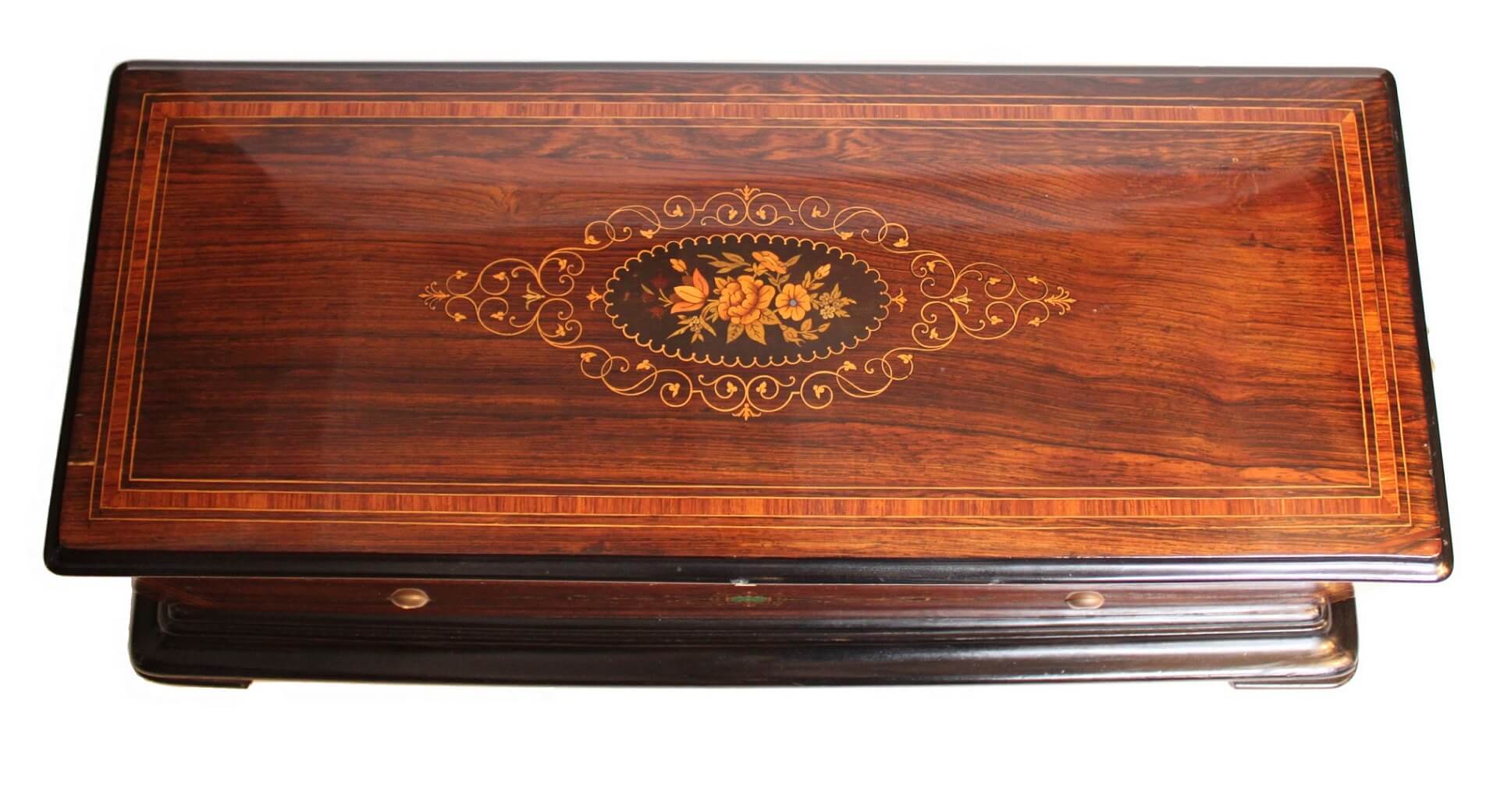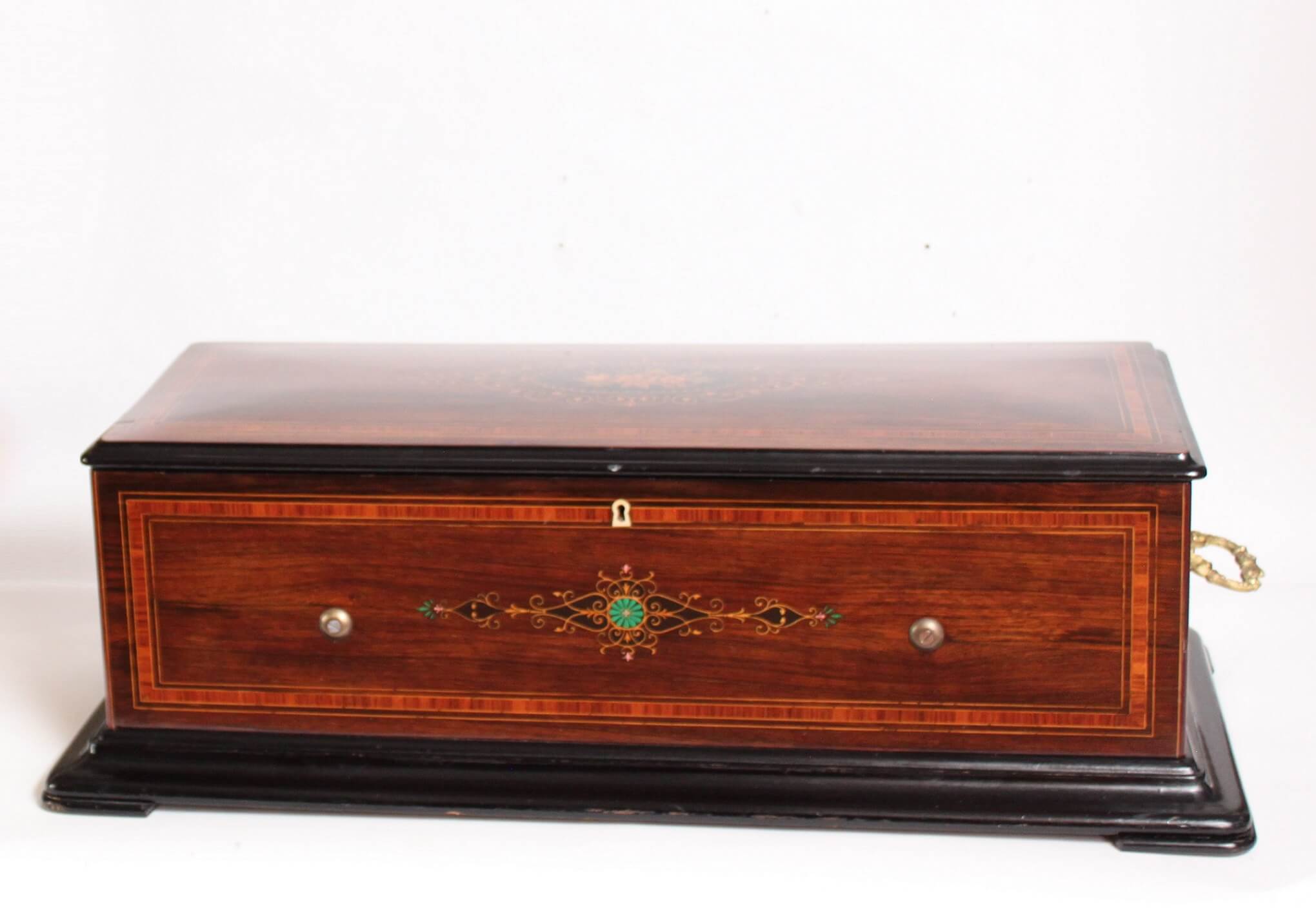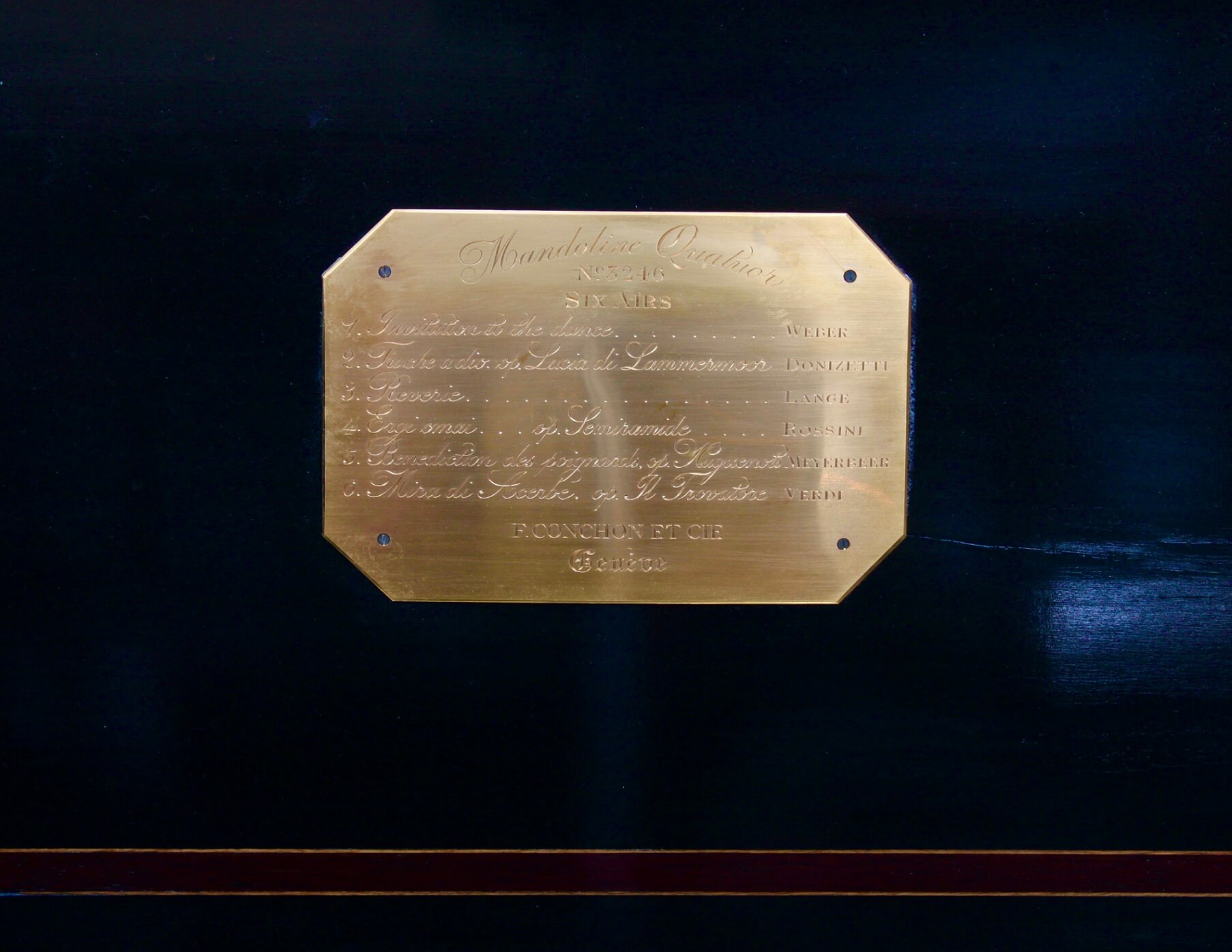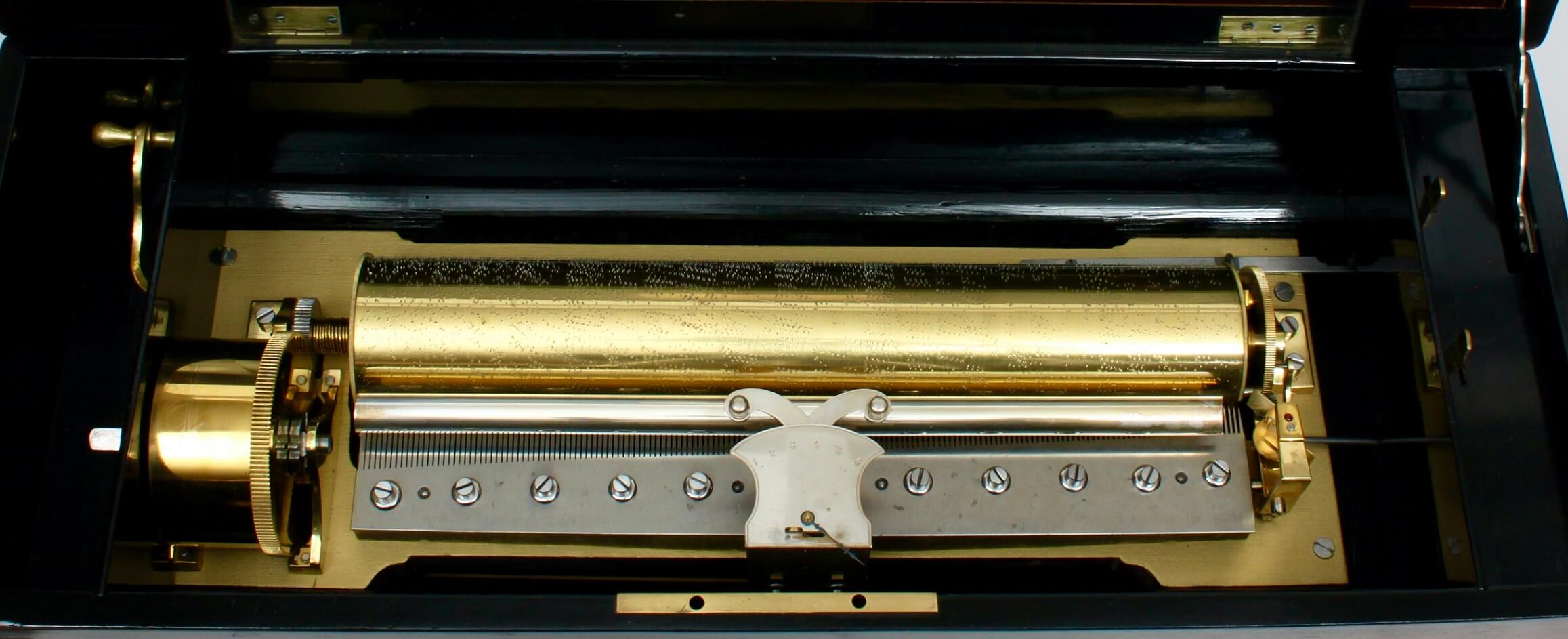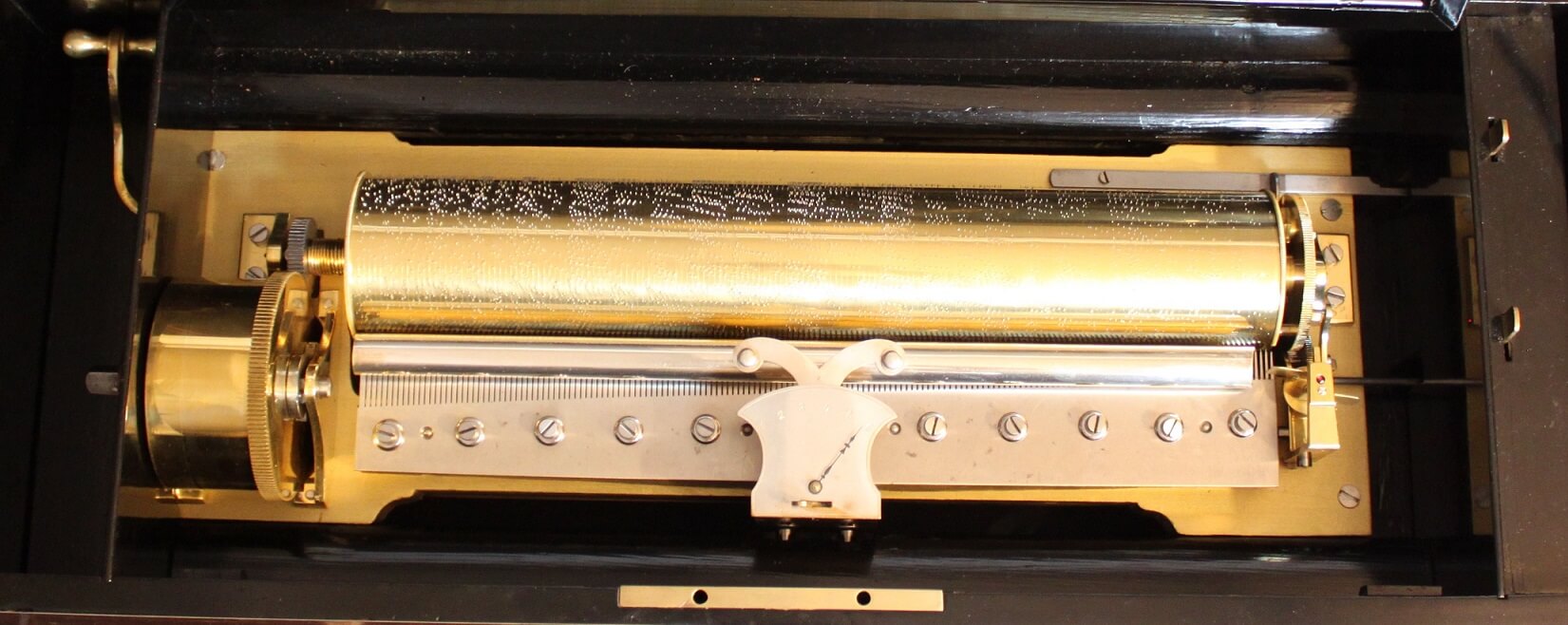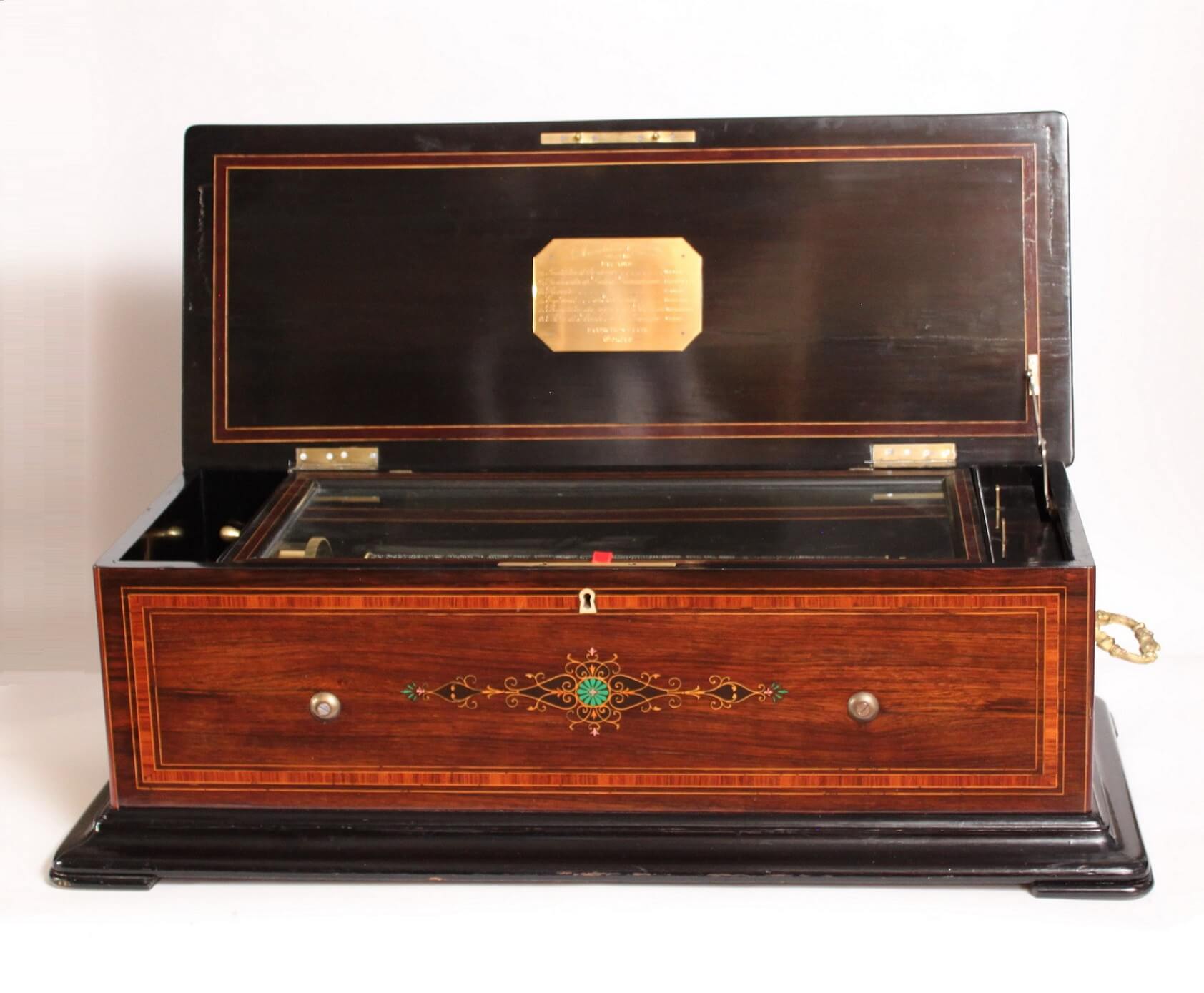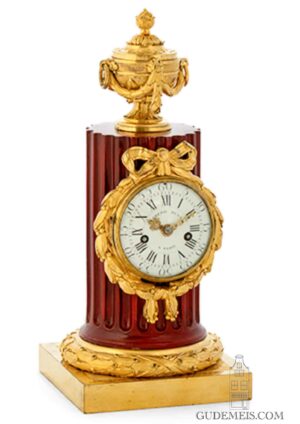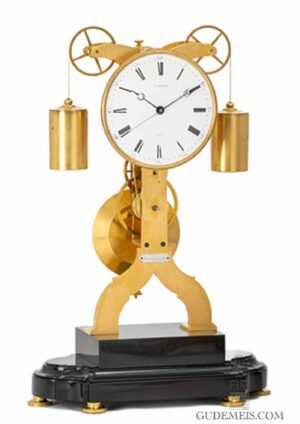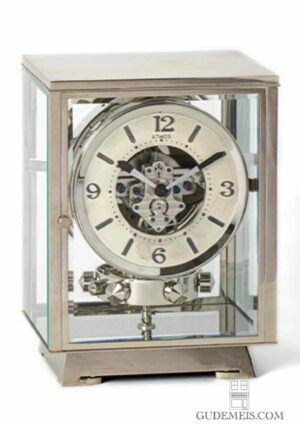An impressive and rare Swiss rosewood ‘Mandoline Quatuor’ cylinder music box by Conchon, circa 1860
Description
The Mechanism
The beautiful brass mechanism plays one of six melodies with a 45-cm wide cylinder on a finely toothed steel comb with zither. It is being driven by a large spring barrel with fixed winding handle. To the right there are two operating levers. The front one for start/stop playing, the hind one for change/repeat of the melody. The large and wide cylinder and intricate setting of the melodies create a very diverse and full sound.
The Case
The beautifully made rectangular case is veneered with walnut and rosewood. The lid and front both have a marquetry ornament inlay. On the sides are two heavily cast brass rococo handles. The well engraved brass tune plaque inscribed Conchon et Cie No. 3246 Geneve is fixed on the inside of the lid.
Mandoline Quatuor
The term ‘mandoline’ refers to the possibility of the mechanism to play many similar notes to sound at the same time. This is accomplished by having several equally tune teeth next to each other, which makes it possible for a next tooth can be played while the former still is vibrating. The system was invented around 1840 and is appreciated because the sound of the music becomes more diverse and fuller. The term ‘quatuor’ refers to a set up which was devised by David Cadet. It was he who was able to produce a wide comb with four sections of five teeth each around 1820. The very wide cylinder of this box makes a combination of the two systems possible creating the very rich and diverse sound. The complexity of these two systems is one of the reasons why this type of music box is very rare. With its substantial cylinder and beautifully made case this must have been one of the most expensive music boxes in that time. Lit; Van Witteloostuijn en R. Maas, Muziek uit stekels en gaten. PP. 79 en 241.
The Melodies
1. Invitiation to the Dance, Weber.
2. Tu che adio, opera Lucia di Lammermoor Donizetti.
3. Reverie, Lange.
4. Ergi omai, opera Semiramide, Rossini.
5. Benediction des Poignards, opera Huguenots, Meyerbeer.
6. Mira di Acerbe opera Il Trovatore, Verdi.
